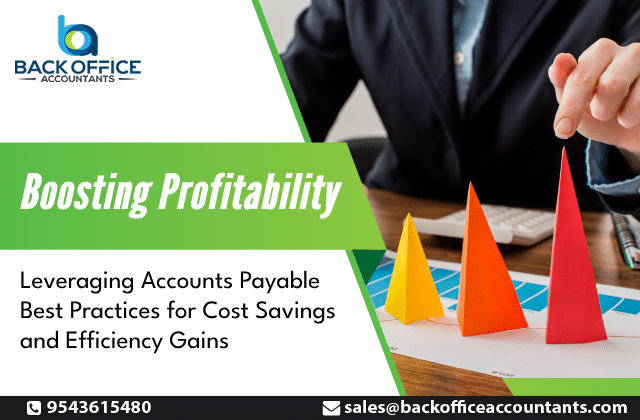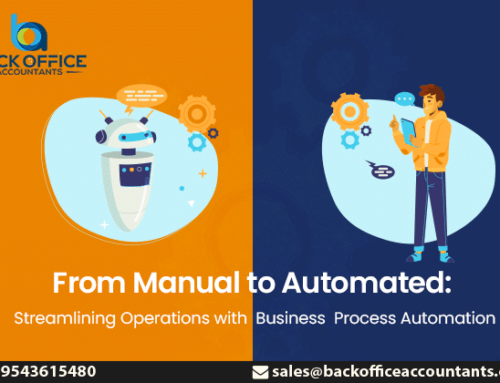Optimizing profitability is a primary objective for organizations across industries in today’s competitive business world. Accounts Payable best practices (AP) is one frequently overlooked sector with substantial potential for cost reductions and efficiency advantages.
In addition to streamlining financial operations, efficient AP administration improves cash flow management and cultivates longer-lasting vendor relationships. Join us as we explore the methods and approaches that may transform AP administration and boost profitability to new heights.
The Value of Effective Accounting Payable Procedures
The value of Payable Procedures lies in its ability to boost productivity, simplify financial processes, and reduce costs. Streamlining accounts payable can help companies cut mistakes, lower financial risks, and ensure timely payments to vendors. By following effective best practices, businesses can track and control payment schedules more accurately, improving cash flow.
This approach ensures that money is spent wisely and that supplier relationships remain strong. Simplified processes also allow companies to take advantage of early payment discounts, lowering costs and increasing profits.
Additionally, efficient accounts payable systems improve compliance with both internal rules and external regulations. Proper record-keeping and following set procedures can help organizations avoid fines and audit issues.
Performance Evaluation
A performance review of accounts payable outsourcing looks at key factors to assess how well the process is working. These include invoice processing time, accuracy, and vendor satisfaction.
By tracking the time it takes to process invoices from receipt to payment, businesses can identify any delays or issues. Accuracy rates help ensure payments are made correctly and follow vendor agreements, measuring errors or inconsistencies. Vendor satisfaction scores show how well the company meets supplier needs, which is important for maintaining good relationships and timely delivery of goods and services.
Using Technology and Automation to Simplify Invoice Processing
- Electronic Invoicing: Converting from paper-based to electronic invoicing formats simplifies the process of submitting invoices, lowering the possibility of mistakes and the need for human data entry.
- Optical Character Recognition (OCR): This technology enables automatic data extraction and entry into accounting systems by converting scanned paper bills into editable digital text.
- Invoice Approval Workflows: By having automated processes in place, bills may be electronically sent to the right people for assessment and approval, which cuts down on delays and bottlenecks in the approval process.
- Integration with Accounting Software: The integration of accounting software and invoice processing systems ensures accurate financial reporting and facilitates the seamless transmission of invoice data. This removes the need for manual data entry.
- Payment Automation: Automated payment processing allows organizations to schedule and execute payments electronically, reducing the time and effort required to process payments manually.
Utilizing Analytics to Gain Understanding
Enhanced comprehension of financial data and improved operational effectiveness are provided by integrating analytics into accounts payable services. Complex financial information may be simplified into understandable visual representations like graphs and charts through data visualization.
Stakeholders can easily spot key trends and insights through these graphics, which aids in decision-making. Analytics also allow businesses to analyze spending and vendor performance trends.
This analysis helps find cost-saving opportunities, supports supplier negotiations, and optimizes purchasing decisions to boost profitability. It also plays a critical role in detecting fraud by highlighting inconsistencies in payment and invoice data.
By reporting suspected fraud or compliance issues, organizations can reduce risks and protect financial integrity. Additionally, analytics help manage cash flow by improving working capital and predicting future cash flows. By analyzing accounts payable data alongside other financial KPIs, organizations can optimize cash reserves and ensure timely supplier payments.
Final Overview
In today’s competitive business world, streamlining accounts payable processes is crucial for boosting profitability and efficiency. Back Office Accountants specialize in full accounts payable services, including electronic invoicing, OCR technology, invoice validation, and payment automation. Moreover, they streamline processes by integrating advanced tools, which enhance efficiency and reduce errors. Additionally, their comprehensive approach ensures timely and accurate processing, leading to improved cash flow management.
They offer tailored solutions, including outsourced bookkeeping services, to meet the specific needs of businesses across the United States. With expertise in financial reporting, reconciliation, and QuickBooks management, Back Office Accountants help companies improve financial performance and drive growth.







